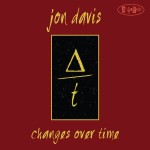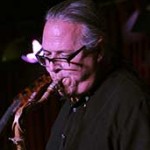http://ginalovesjazz.com/ken-fowser-standing-tall/
Ken Fowser – Standing Tall
The twelve original compositions on saxophonist Ken Fowser‘s first album as a leader, “Standing Tall”, show his true mastership in swing, style, and structure. “Head Start” is a perfect album opener with an ebullient, and yet relaxing harmonic overtone that reminds me of some of the finest Impulse releases from the 60s.
The cool and grooving nature of the album continues with “Lucid Dreaming”, where Rick Germansonhas a nicely flowing solo on piano. Ken doubles with trumpeter Josh Bruneaumostly and really transports us into Smoke, New York’s Uptown Jazz mecca, where the intimacy of his playing is probably best represented. Things turn bluesy on “Filling In The Blanks” where Ken’s pretty fat and sonorous tenor sound really comes to the fore.
And with “Off The Path”, another engaging tune, Ken delivers a bouncy showcase for his full band, with Paul Gill on bass and Jason Tiemann on drums. Ken has worked with Jimmy Cobb, David Hazeltine, Ray Drummond, Mickey Roker, to name a few and his sophisticated style in pieces like “The Fade Away” can certainly be attributed to his partners in crime – it has a modern-day Jazz Messengers feel to it. Highly enjoyable and masterfully executed. It’s a thrilling journey, really.
Ken continunes on the flowing, straight-ahead path with another aesthetically timeless piece, “Patience And Optimism”, the latter of which seems to be the continuing thread or motif for his strong playing and the cute compositional skills. My personal favorite for the moment is the title track with its effervescent playing and the deep immersion into some joyful musicianship. And then there is the somewhat brooding style of “Hanging On”, a more introspective kind of tune with a beautiful solo by Rick Germanson. He plays some Barry Harris /Tommy Flanagan-stlye, elegant yet bluesy and thick piano on “Brick’s Tune”, another delightful piece.
This is a very promising start into the new year. Ken is playing a couple of shows in New York: He is going to play at The Grange on January 10th (Trio), at Fat Cat on January 14th (Quintet), and the record release party will be at the 9th Note in Stamford, CT, on January 23rd.
–Matthias Kirsch


 I am the first to celebrate such individuality for its extra edge and audacity and take no issue with his occasional impetuosity under studio conditions. His producer Marc Free does not seem to mind and seems to encourage these forays into youthfulness. So while you are left to wonder at his blaze of youthful power and aplomb in the inchoate whirl of compositions that stretch from Head Start to Somebody’s Got To Do it from this same set where the compositions break out into frequent moments of light and jazzy boperation, you are also left dumbstruck by a great maturity of imagination about this virtuosity of dreaming; a player with a classic poise that illuminates the work here rather than take away from the composer’s high-octane rhetoric and fervour.
I am the first to celebrate such individuality for its extra edge and audacity and take no issue with his occasional impetuosity under studio conditions. His producer Marc Free does not seem to mind and seems to encourage these forays into youthfulness. So while you are left to wonder at his blaze of youthful power and aplomb in the inchoate whirl of compositions that stretch from Head Start to Somebody’s Got To Do it from this same set where the compositions break out into frequent moments of light and jazzy boperation, you are also left dumbstruck by a great maturity of imagination about this virtuosity of dreaming; a player with a classic poise that illuminates the work here rather than take away from the composer’s high-octane rhetoric and fervour.
